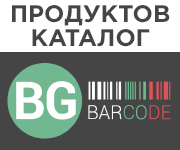BCCI: The minimum wage is a consideration for performed work under an employment contract
The European Commission has launched the second phase of consultations with the social partners – the European trade unions and employers’ organizations – on the ways of ensuring fair minimum wages for all workers and employees in the European Union. In this regard, the Bulgarian Chamber of Commerce and Industry (BCCI) prepared a Position on the consultation document.
In principle, BCCI supports the initiative to initiate a discussion on minimum wages in the EU in the framework of tripartite cooperation. The topic is among the main priorities of the Association of the Organizations of Bulgarian Employers (AOBE) for 2020.
The lack of a transparent mechanism with clear criteria in Bulgaria, explicitly stated in the document on the second phase of consultations, is a defect of the labour market that should have been remedied long ago, together with its administrative imposition as a proven non-market tool. BCCI considers the launched initiative of the European Commission a good step for our country to adopt a mechanism for determining the minimum wage.
BCCI has submitted several proposals on the consultation document, as follows:
1. In view of the role of the International Labour Organization (ILO) in developing and adopting international labour standards in the form of conventions and recommendations for implementation, according to the BCCI, the EC initiative on minimum wages should be in the form of recommendations and not as a directive. The reasons for this are also related to taking into account the specifics of each country and respecting the achievements of the tripartite and bipartite cooperation in the Member States. In some EU countries, there is no statutory minimum wage (Denmark, Finland, Sweden, Austria, Italy and Cyprus) and any changes (including legal ones) should not undermine the employment relations when negotiating between employers and trade unions.
2. For BCCI, the promotion of the negotiation of minimum wage in collective agreements at the enterprise level continues to be an important priority, given the large differences in the economic and financial capabilities of enterprises, even from one or related industries/branches.
3. As can be seen from statistics, the minimum wage in the Member States where it is statutory established differs significantly measured in monetary terms (euro), in purchasing power parity, as a share of gross median wage. There are also significant differences in the tax and insurance burden on the minimum wage. The Chamber recommends when preparing follow-up analyzes in the consultation process to supplement them with detailed information on labour productivity by country and legislative specificities for all countries. As it is clear, the minimum wage is a consideration for performed work under an employment contract and as such should be a function and dependent on the level of labour productivity.
4. BCCI categorically does not agree that the minimum wage throughout the EU should amount to 60 percent of the average wage. Such a ratio of the minimum wage to the average wage has a demotivating effect on employees to improve their skills and qualification. As "healthy" for the economy and the labour market, BCCI defines the 41-42% ratio of the minimum wage to the average wage, which is very close to the EU average (for the countries where a minimum wage is currently introduced).
5. It is also unacceptable to launch populist ideas in Europe, with which we cannot agree - for example, a single salary of EUR 750 throughout the EU, which would harm the economy not only of Bulgaria but also of other Member States.
Още новини:
-
09-06-2020
-
09-06-2020
-
08-06-2020

 1 USD =
1 USD =  1 GBP =
1 GBP =  1 CHF =
1 CHF =  ISO 9001:2015
ISO 9001:2015



























